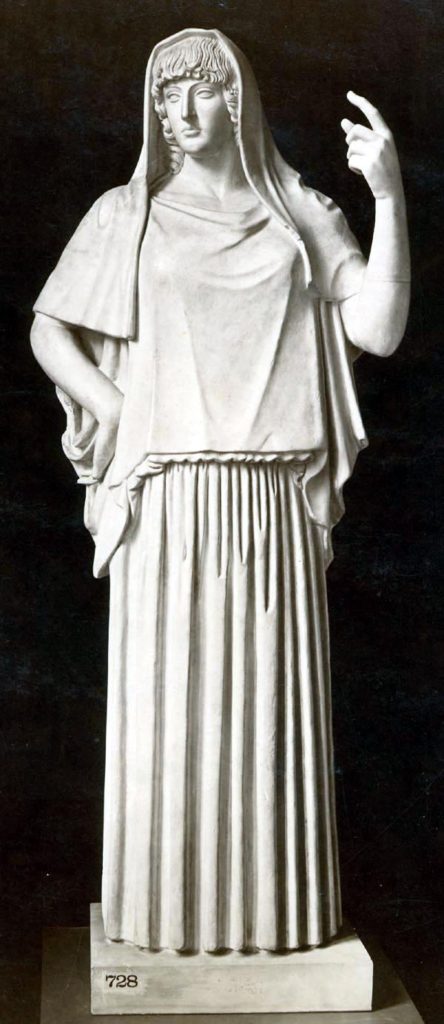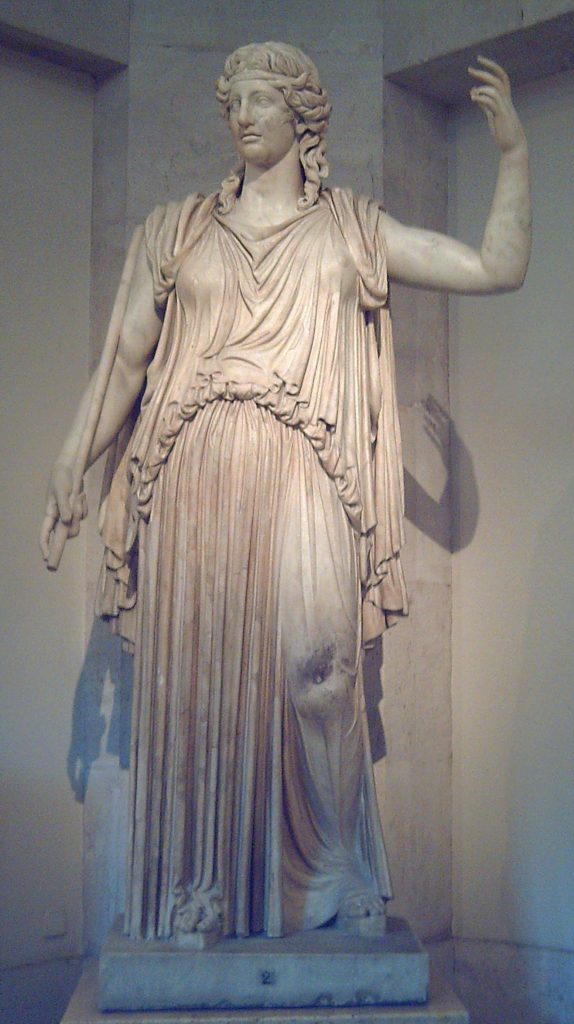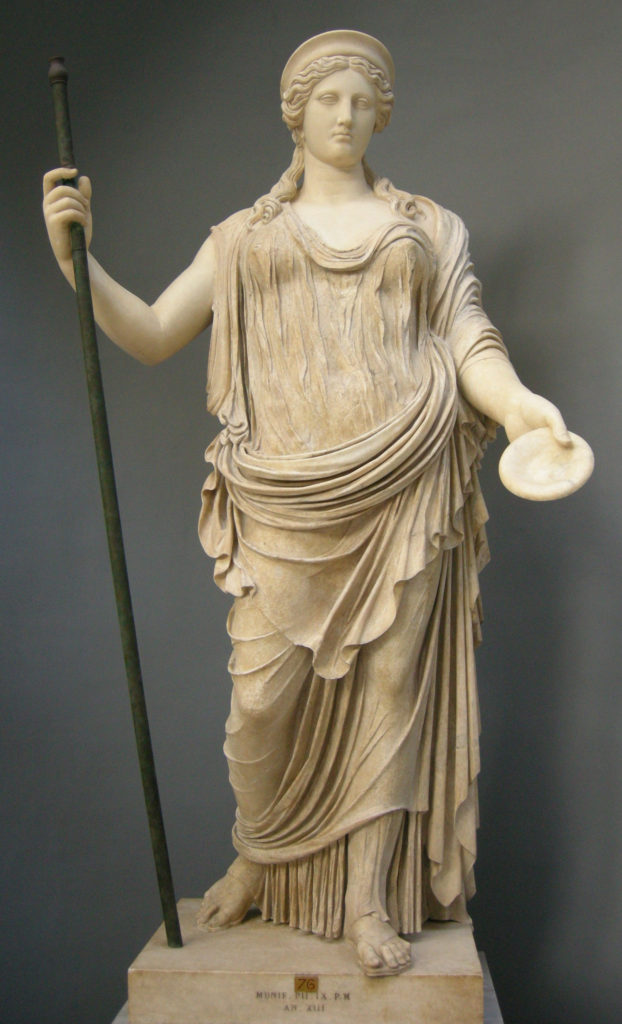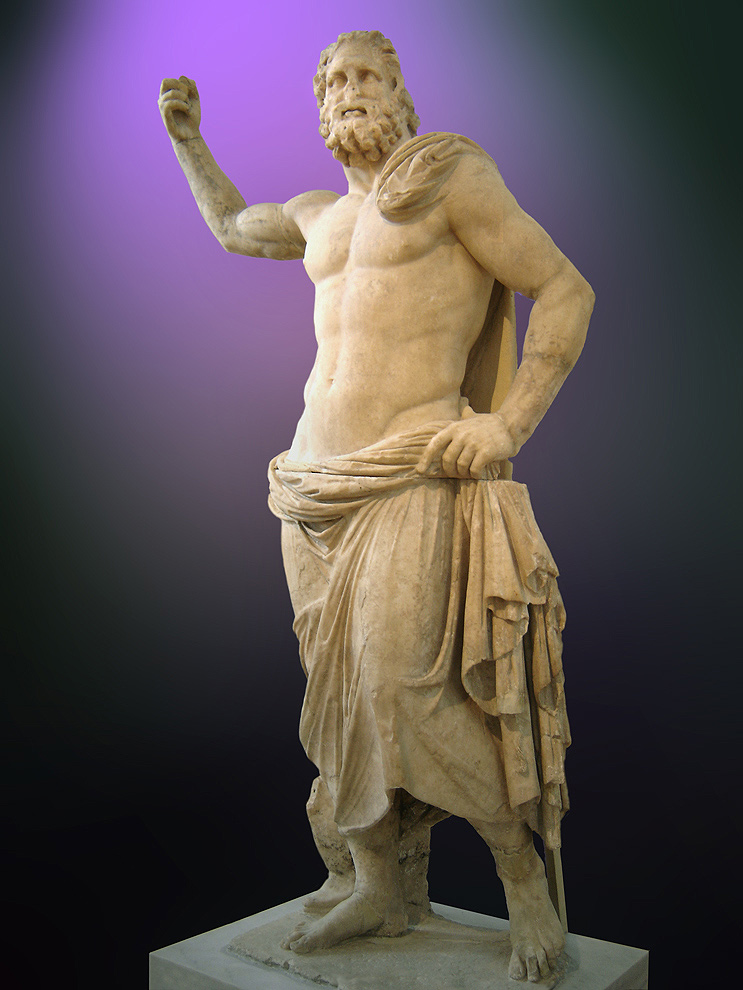Anyone familiar with Greek mythology knows how important of a figure Zeus is. He’s the king of the gods and the ruler of Mount Olympus. He ends the Succession Myth, effectively ending a cycle of immortal battling over the throne and securing his place as the eternal rule of the cosmos!
He’s one of the most famous figures in Greek mythology, for better or worse. But he wasn’t the only one to emerge from the line of succession before him.
He had several siblings who would become important figures in their own right.
Zeus had two brothers, Poseidon and Hades, who ruled supremely in their respective domains, and three sisters, his wife and queen Hera, Demeter, and Hestia.
The Birth of the Olympians
To understand who the brothers and sisters of Zeus are, you have to know about the birth of the Olympians. This generation of gods did not become the principal deities of the Greek Pantheon by fate. The events surrounding their birth were a crucial part of the Succession Myth.
Zeus’ father, Cronus, swallowed his children at birth because he feared that they would take over his spot on the throne one day. Cronus swallowed each of Zeus’ brothers and sisters. But upon the birth of Zeus, his mother, Rhea, hid him on the island of Crete. Meanwhile, she gave Cronus a stone wrapped in a swaddling blanket.
The surviving Olympian grew to maturity before challenging his father and forcing him to disgorge his brothers and sisters. Interestingly enough, Zeus is both the youngest and oldest of his siblings. He was the last born from Hera but the first to survive.
After releasing the Olympians, Zeus raged war on the Titans. The ten-year battle resulted in Zeus taking the throne on Mount Olympus and banishing Titans to Tartarus.
There are a total of Twelve Olympians. However, only five of them are direct siblings to Zeus.
Hestia

The firstborn Olympian is Hestia. He’s the goddess of the hearth, the family, the home, and the state. Her status as the firstborn entitles her to the first offering in every household sacrifice to the Greek gods. Later, Zeus granted her the honor of presiding over all gifts.
Hestia did not have any children. In fact, she swore to remain a virgin goddess shortly after Apollo and Poseidon became her suitors. Many artists depicted her as a matronly figure despite not being a mother. She represented domestic life and was often shown tending to a hearth.
Her shrines and temples often included an eternal flame to represent her connection to fire. Letting the fire die was a severe breach of duty. The responsibility of Hestia’s cults usually fell onto the women of the household.
Hestia is a major goddess, but she’s not as active as her brothers and sisters. While her siblings got caught up in the business of mortals and heroes, Hestia devoted her time to maintaining hearths and homes.
Demeter

The next sibling of Zeus is Demeter. Demeter is the Olympian goddess of harvest and agriculture. She was responsible for grains and the overall fertility of the soil. The goddess also presided over sacred law and the cycle of life and death. The latter responsibility earned her the epithet of Thesmorphos, or “bringer of divine law.”
Demeter wasn’t just Zeus’ sister. She was also a former consort. Out of their brief relationship came Persephone.
Persephone was kidnapped by Hades and taken to the Underworld. The event caused Demeter to mourn so much that she neglected her duties. Fearing the end of humanity, Zeus struck a deal with Hades. Persephone would stay in the Underworld for one-third of the year as his bride. But for the second third of the year, she would spend time with Demeter. The final third of the year went to whomever Persephone chose.
Persephone decides to spend two-thirds of the year with Demeter. During that time, plants thrive, and the soil is fertile. But during the winter, when she’s in the Underworld, the soil is barren and lifeless. The mythology says that’s how the growing seasons came to be.
Hera

Hera is the final sister of Zeus. She is the Olympian goddess of women, marriage, childbirth, and family.
Like Demeter, Hera wasn’t just Zeus’ sister. She was also his wife. As Zeus’ wife, she ruled Mount Olympus as Queen. In most depictions, she’s portrayed as a royal-looking deity surrounded by the animals she sees as sacred. Typically, she was surrounded by cows, peacocks, and lions.
With Zeus, Hera had several children. Some of the most famous include Ares, Eileithyia, Hephaestus, and Hebe. They are the god of war, the goddess of childbirth, the god of blacksmithing, and the goddess of eternal youth, respectively. She also gave birth to the Charities.
In Greek mythology, Hera’s jealousy is a frequent topic for writers. The goddess was forever faithful to her husband. Unfortunately, Zeus couldn’t return the favor. His infidelity knew no bounds. With other consorts, he fathered many children.
Hera frequently sought revenge on Zeus’ consorts. One of the most famous instances was Leto, who would give birth to the Olympian twin gods Apollo and Artemis.
Hades

Zeus’ oldest brother is Hades, the god of the Underworld. He was the last of the Olympians to get regurgitated by Cronus, so he’s both Zeus’ older and younger brother.
After the end of the Titanomachy was, Zeus and his brothers had to decide who presided over what realm. Zeus received the sky, Poseidon got the ocean, and Hades got the Underworld. Hades took to the role quite well, spending most of his time governing the lost souls that fell to his realm.
He was a widely feared figure in ancient Greece. People didn’t even want to say his name. Hades reveled in the fear, but he was a relatively just god. Most of the stories involving Hades had other figures trying to bend the rules of the Underworld to their favor. Hades did not appreciate the attempts to cheat death or quests to return to the land of the living.
Hades spends most of his days in his Underworld palace with his wife, Persephone. As we mentioned earlier, he kidnapped Persephone. Because she ate the seeds of the Pomegranate, she was forever bound to him.
Poseidon

Poseidon is the final child of Cronus and Rhea. He is the Olympian god of the sea, storms, and earthquakes. He also presided over horses. The chief deity of Pylos and Thebes, Poseidon, is one of the most respected of the Olympian gods. However, he was also known for his destructive tendencies.
Seafarers felt his wrath the most. He often shook the earth with his Triden and created monstrous storms that would capsize ships instantly.
One unique story involves Poseidon and Athena. Athena became the patron god of Athens after beating Poseidon in a competition. The sea god created a surrogate. The god tried to offer a gift to Athens by creating a spring with his trident, but they chose Athena’s olive tree instead. So, he sent a devastating flood to punish the Athenians for not choosing him as their patron god.
Like Zeus, Poseidon had a reputation for having multiple consorts. He fathered many famous figures. Some examples include Triton, Theseus, Orion, Pegasus, and more.
Chiron
The five deities we’ve already covered are children of both Cronus and Rhea. They all became Olympian gods. While not an Olympian, there’s one half-sibling worth mentioning.
Chiron is the son of Cronus, making him a half-brother to Zeus. His mother was an Oceanid nymph named Philyra.
Chiron is not a god. He’s a wise centaur who challenged the reputation of the entire centaur race. Most other centaurs were violent and aggressive, but Chiron was incredibly wise. That may have been a product of his upbringing.
While Chiron was born to Cronus, he was raised by Apollo. Apollo taught him medicine, archery, music, and more. A natural teacher, Chiron tutored many famous figures in Greek mythology.
He taught Achilles, Jason, Asclepius, and even Heracles. Chiron died due to an accidental piercing by Hercales’ poisoned arrows. But, he didn’t want to be immortal. He exchanged his immortality for the life of Prometheus, who he believed did the right thing by giving humans fire. After his death, Chiron was placed in the stars as the constellation Centaurus.